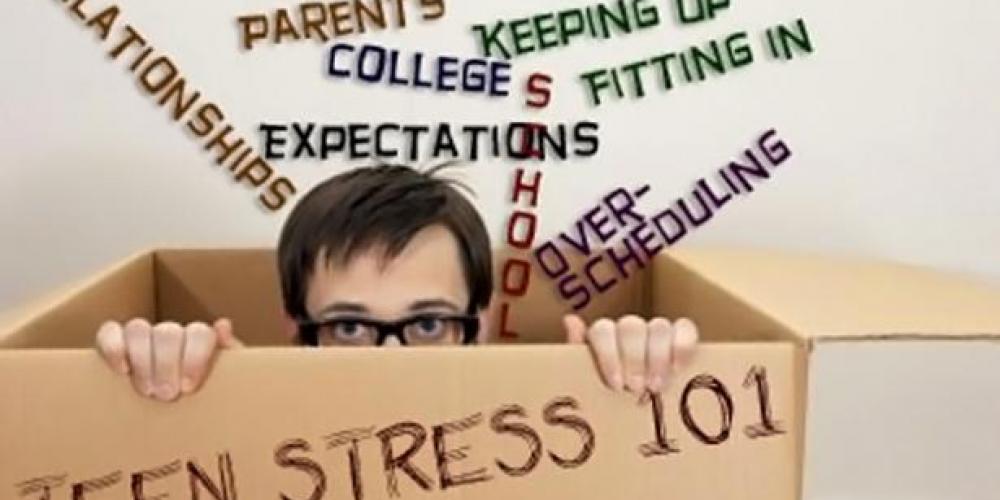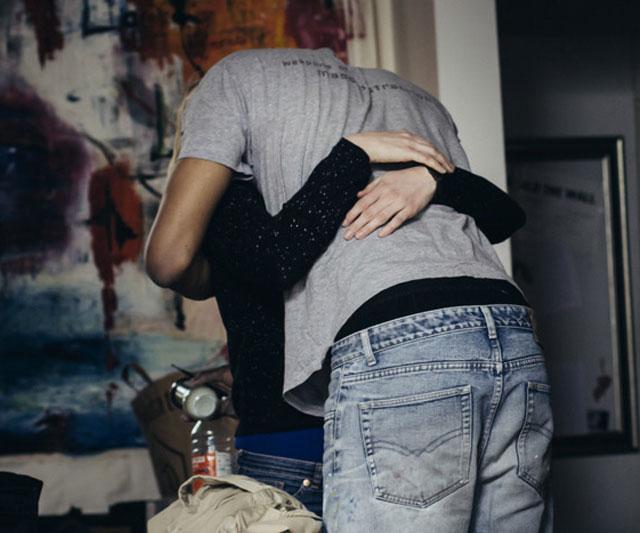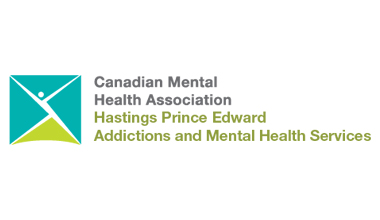
Young Minds: Stress, anxiety plaguing Canadian youth
This article from Global News hits the nail on the head! Read the article below or follow this link: http://globalnews.ca/news/530141/young-minds-stress-anxiety-plaguing-canadian-youth/ to read the article and watch the expert videos. We need to be there for our youth!
By Allison Vuchnich and Carmen Chai Global News
If you think the adolescent years are filled with fun and frivolity, think again. It is increasingly turning into a time of stress and expectations, just ask a teenager how they are feeling.
“Exams stress me out,” one student told Global News.
“A little panicky and nervous that you are not going to get everything done,” another said.
“I think social stress is 10 times worse than homework stress. You always have to think about who is talking about you, who started that rumour, and it can get really crazy sometimes and I find that the hardest thing to deal with.”
Those are just some of the sentiments students are grappling with.
Canadians’ days are a whirlwind: commute to the office or school, work, head into the rush hour traffic to get children to activities and home. Rest, repeat.
Adults have bills to pay, deadlines to meet, families to take care of. We’re a society infected by stress – and it’s rubbing off on our youth as well, experts say.
Stress weighing down Canadian youth
Young Canadians are suffering from rising levels of anxiety, stress, depression and even suicide. Close to 20 per cent – or one in five – have a mental health issue.
“Many of us are worried that the number of young people today experiencing mental health problems is on the increase,” Dr. Jean Clinton, a child psychiatrist at McMaster University, told Global News.
“As a society, we need to be saying this is a crisis,” she said.
The Canadian Mental Health Association estimates that that total number of 12 to 19 year olds at risk of depression is a staggering 3.2 million.
Anxiety is the biggest symptom of this overarching stress, Clinton said. And it burdens youth, seeping into their daily lives.
“Overwhelming anxiety turns on your stress system and if it is kept on, new learning can’t happen. It’s interfering with your learning,” Clinton said.
Clinton noted that the survey is only a segment of kids’ sentiments – others didn’t get the parental consent to participate, meaning these numbers could even be higher.
She has been a child psychiatrist for 27 years. In that time, the psychiatrist has noticed family life gradually eroding. Dinnertime with the family at the table sharing a conversation is now a novelty.
Instead, parents shuffle their kids off to gymnastics class, hockey practice, math tutoring. Kids are being directed and corrected.
“(There is) good intention, great hearts, but less time and less focus is spent on connecting with our kids,” Clinton said.
Parental time with kids adds adult influence, guidance
There has been heated debate in the quality versus quantity discussion on how to spend time with your kids. Clinton said the emphasis should be on being present in their daily lives.
“You don’t suddenly make up for not talking to your kids for six months by going away for a week to Disney World. It’s the day-to-day serve and return that makes a big difference,” she said.
That daily time helps shape kids’ minds and values: parents can touch on school work, how to talk to peers, and respecting others, for example.
“How you build influence is by being present,” Clinton said.
Research has even suggested that kids who shared fewer meals at home with their family got into having sex or trying drugs at an earlier age.
Children feel the ripple effects of their parents’ stress, Stephen de Groote noted.
De Groote and Clinton both offered their insight in April at a training event for Youth Justice Ontario. The focus of their speech was “The Teenage Brain Under Construction.”
De Groote believes youth need to feel safe, valued and that they have direction in their lives. If they’re feeling disconnect, it could foster anxiety and depression.
“Our children are the best barometer on our stress,” de Groote said.
“We also have kids who live in very extreme kinds of parenting circumstances: either still highly authoritative and controlling or extremely permissive and passive,” he told Global News.
Fostering resiliency instead of bubble wrapping kids
Instead, parents need to help their kids find that balance, provide them with tools such as problem solving, conflict resolution and building a thick skin to help cope with roadblocks in life.
That way, youth are armed and prepared to handle responsibilities and inevitable setbacks.
“We’re not necessarily giving kids always enough responsibility, exposure to positive kinds of risk, enough challenges. I’m not sure we’re always preparing our kids to launch out into the world,” said Dr. Michael Ungar, a Dalhousie University social work professor.
Parents need to facilitate the growth of resiliency in their kids, brace them for the challenges ahead.
“We do see this bubble-wrapping, this over-protecting parenting phenomena,” he said, “and we facilitate that resilience. We make kids resilient, right? We give kids the opportunities as they’re growing up to be challenged just enough. To have enough responsibility so that when they hit a speed bump in life, they are going to have the skills to get over it.”
“I’m not sure that we’re producing the kinds of kids that have the resilience to overcome the stressors that they’re going to encounter when they hit post-secondary education, where they just aren’t always up for the task,” Ungar said.
Ultimately, these young adults end up in counsellors’ offices reporting anxiety and shutting down based on “pretty normal life stressors,” Ungar explained.
Like adults, youth also need an outlet to relieve their stress.
Alex Mazerolle felt the weight of the world on her shoulders at only 13 years old.
She was going through puberty, juggling school, homework, a competitive dance schedule and social pressures.
The Vancouver-based woman, thinks that it’s even worse these days with the Internet, Facebook, Twitter and text messaging piling pressure on teens.
When she discovered yoga in her 20s she realized this could really help teenagers to cope, especially girls. So she founded Girlvana. She leads workshops and classes to ease teenage stress with yoga and meditation.
“Everything is just really loaded on teens and we’re just saying ‘here you go, okay cope without any outlet’,” she said. “I really wanted to give girls an outlet and some tools to cope with what was going on.”
Research from Harvard University’s medical school shows teenagers have less anxiety and can handle stress better when they practiced yoga and meditation.
“It teaches us to really connect to ourselves and really feel embodied versus really living upstairs in our heads in our thoughts and what society thinks we should be,” Mazerolle said.
- Author: By Allison Vuchnich and Carmen Chai Global News
- Article Source: Global News








